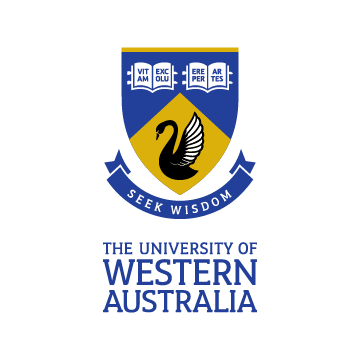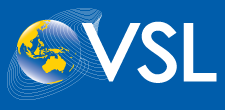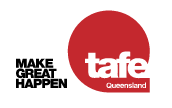Studying French 1 is stimulating and enjoyable as you will cover a large amount of French in a short period of time. You will also learn about French and Francophone culture.

Studying French 1 is stimulating and enjoyable as you will cover a large amount of French in a short period of time. You will also learn about French and Francophone culture.
Course outline
The course is based on Units 1 to 3 (and introductory unit) of Défi 1: A French Course for English Speakers, which offers both a traditional textbook and online materials should students wish to purchase a hybrid edition of the book. Défi 1 provides language learning to level A1 of the Common European Framework of Reference for Languages.
The Défi 1 textbook will be supplemented by other learning resources in French by your teacher, including written texts, audio, video, and other online materials. Each week, students will also be given some Traveller Abroad vocabulary. Each lesson covers topics outlined below.
Topic 1
In the ‘Dossier de découverte’ begin your discovery of French and Francophone culture, with a snapshot of speciality cuisines, key monuments, and artists from different regions, exploring a map of ‘la Francophonie’ (the French-speaking world). Learn vocab for ‘Salutations’, how to greet people in familiar and formal situations, and introduce yourself. Ask how others are in French and describe how you are. Study the verb ‘s’appeler’ (to be called), ‘pronoms sujets’ (subject pronouns), and ‘pronoms toniques’ (stressed pronouns). Plus, survival phrases for a ‘classe de FLE – français langue étrangère’ (French as a foreign language class).
Topic 2
Start Unit 1 of Défi 1, revising ‘Salutations’ (looking at French culture regarding greetings) and learn how to say and ask where someone is from. Read key cultural statistics about France, its geography, and its peoples. See how to spell in French (including accents) and learn the French alphabet via Paris monuments from A-Z. Learn numbers from 1-20 and explore the Paris métro. Discover how to order a pizza in French. Learn the verb ‘être’ (to be) and gender via masculine and feminine words and definite articles ‘le’, ‘la’, ‘les’ (the). Plus, ordinal adjectives in relation to ‘arrondissements’ in Paris, such as ‘premier’ 1st and ‘deuxième’ 2nd.
Topic 3
Study key facts about life expectancy and age groups in France and other countries. Learn key professions and their masculine and feminine forms and how to say your own job title. Explore numbers, from 20 to 5 million! Learn the verb ‘avoir’ (to have) and how to say how old you are.
Topic 4
Commence Unit 2 of Défi 1, with a voyage to the Zinneke Parade in Brussels. Learn more about Belgium, a key French-speaking region, hearing testimonials of Belgian residents and master the skills to fill in a ‘fiche d’identité’ (identity form). Investigate question words (including quel, quoi, que, qui, combien, où, quand, and comment).
Topic 5
Continue the discovery of Belgium through the lens of multiculturalism, and additionally explore ‘une Europe multiculturelle’. Read about ‘stéréotypes’ around the Francophone world. Learn the vocab for different countries in relation to gender and prepositions to accompany regions and cities in French. Study the verbs ‘venir’ (to come), ‘aller’ (to go) and ‘aimer’ (to like or love).
Topic 6
Look at Morocco and Switzerland, other French-speaking regions (their sites, attractions, souvenirs, and local specialties). Revise the verb ‘aimer’ whilst learning other verbs ‘adorer’ and ‘détester’ to express tastes. An introduction to regular -er verbs in French. Learn negation in phrases with ‘ne’ and ‘pas’ (not). Study indefinite articles ‘un’, ‘une’, and ‘des’ (a, an, some). Plus learn how to agree and disagree with affirmative or negative sentences.
Topic 7
Start Unit 3 of Défi 1, learning vocab around families and relationships. Learn to describe your family and relationships via an ‘arbre généalogique’ (family tree). Explore different types of families, including ‘la famille nucléaire, recomposée, monoparentale’ (nuclear, hybrid, single-parent family). Learn about key regions of ‘la Francophonie’.
Topic 8
Continue learning vocab about families alongside possessive determiners to indicate familial relationships, such as ‘mon père’ (my dad), and ‘ma mère’ (my mum). Discover adjectives to describe peoples’ characteristics. Analyze cultural statistics about types of partnerships and their evolution over time in France, from the traditional ‘mariage’ to ‘PACS’ and ‘l’union libre’ (cohabitation).
Topic 9
Read about former French presidents Nicolas Sarkozy and François Hollande and consolidate your understanding of families and relationships vocab. Learn how to describe civil statuses and their adjective endings. Study the usage of terms ‘C’est’ and ‘Il est’ when describing nouns, adjectives, and professions. Look at different nationalities in relation to gender. Plus read about the concept of a ‘mariage mixte’.
Learning outcomes
By the end of the course, you should:
Who should enrol
The course is designed for complete beginners who are interested in, and enjoy, learning about the French language and culture.
Our program
ANU Continuing Education (CE) is run by the ANU Centre for Learning and Teaching (CLT) with the aim to provide members of the wider community an opportunity to extend and enrich their learning.
We offer a range of non-accredited courses to members of the public: Community Courses for those who are keen to engage in lifelong learning through the study of languages, visual arts, history and philosophy.
Along with Executive Short Courses and Micro-credentials which are developed by ANU colleges and institutes, catering primarily to the professional development needs of the workplace and executives looking to expand their career opportunities.
We also provide Professional Learning programs and workshops to support ANU academics with learning and teaching, including course design, inclusive teaching and digital pedagogies.
In addition, we host ANU Extension which is a distinguished program that provides an enhanced learning experience for Year 11 and 12 students in ACT schools and colleges, enabling students to study sciences, engineering, computing, mathematics, commerce, languages and Asian studies at ANU while still in high school.
Our presenters
Our team of academics, trainers and industry experts deliver practical courses which are informed by well-grounded theory, research and pedagogical approaches. All our presenters hold qualifications in their areas of expertise or possess extensive experience in their chosen fields.
Location
Most CE courses are held on the ANU campus and some are held online 'live' via Zoom.
Inclusions
All our courses are non-accredited and participants receive a certificate of participation via email upon course completion.

Spoken on five continents and in main international organisations such as the UN, French is particularly relevant for Australia, given its strategic location in surrounding areas like the Pacific and Indian Ocean.

French Language course is offered by Victorian School of Languages. In standards and content, courses are comparable to those offered in day school language classes, and follow a standard course design.

All French courses are designed to develop your competency in reading, writing, speaking and listening. You won't feel shy or intimidated when you'll be visiting a French speaking country or be using your skills in real-life situations, as you will develop your confidence with native speakers...

The focus of this course is to master the basics and it has been devised to offer the maximum exposure to the French language and culture.
© 2025 coursetakers.com All Rights Reserved. Terms and Conditions of use | Privacy Policy